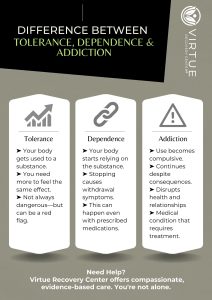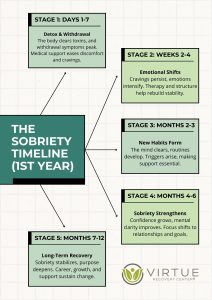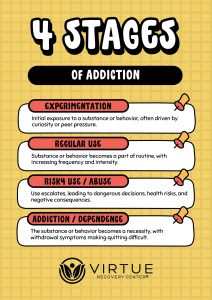Key Takeaways
- Alcoholic ketoacidosis (AKA) is a dangerous condition linked to heavy alcohol use and poor nutrition.
- Symptoms include nausea, vomiting, abdominal pain, and confusion, which can escalate if untreated.
- Timely medical care and long-term recovery strategies can prevent life-threatening complications.
Introduction
Alcoholic ketoacidosis (AKA) is a serious health condition caused by excessive alcohol use, malnutrition, and dehydration. This life-threatening disorder affects how your body produces energy, leading to dangerous chemical imbalances in the blood.
Understanding the signs and symptoms of AKA is essential because it requires immediate medical attention. If left untreated, it can lead to severe complications, including organ damage. This article explains what alcoholic ketoacidosis is, its causes, how to recognize it, and what treatments are available.
What is Alcoholic Ketoacidosis?
Alcoholic ketoacidosis is a type of metabolic acidosis, a condition where the body produces excessive acids called ketones. These ketones build up in the bloodstream when the body starts using fat for energy instead of glucose.
In people with AKA, heavy alcohol use depletes glycogen stores, leaving the body without enough sugar for energy. As a result, the body turns to fat breakdown, which produces ketones. Unlike diabetic ketoacidosis (DKA), blood sugar levels in AKA are usually normal or low.
AKA often occurs in people with a history of binge drinking, chronic alcohol use, or malnutrition. It is more likely to develop during alcohol withdrawal or after episodes of excessive vomiting.
Causes of Alcoholic Ketoacidosis
Heavy alcohol consumption is the primary cause of AKA. Prolonged alcohol use affects the body’s ability to store and utilize glucose, leading to depleted glycogen stores. Without glycogen, the body breaks down fat to produce energy, resulting in ketone buildup.
Dehydration and malnutrition also contribute to AKA. Many people who drink excessively may skip meals, which reduces their intake of vital nutrients like thiamine and electrolytes. This lack of nutrition further accelerates fat metabolism and ketone production.
Other factors that can trigger AKA include:
- Alcohol withdrawal symptoms.
- Severe vomiting caused by heavy drinking or alcohol-related conditions like pancreatitis.
- Episodes of heavy alcohol intake without eating enough food.
Signs and Symptoms of Alcoholic Ketoacidosis
Recognizing the signs of alcoholic ketoacidosis is crucial for seeking timely medical care. Symptoms can range from mild to severe, depending on the condition’s progression.
Common symptoms include:
- Nausea and vomiting.
- Abdominal pain or discomfort.
- Loss of appetite and fatigue.
- Rapid breathing or shortness of breath.
Severe symptoms may involve:
- Confusion, agitation, or delirium.
- Dehydration, with dry skin and dark urine.
- Dizziness or fainting spells.
Physically, patients may present with a high anion gap (a blood chemistry marker) and low blood sugar levels. These symptoms require immediate medical attention to prevent worsening complications.
How Alcoholic Ketoacidosis is Diagnosed
Diagnosing AKA involves a combination of physical assessments and laboratory tests. Medical professionals look for signs of dehydration, confusion, and rapid breathing while also asking about the patient’s alcohol use history.
Blood tests play a key role in confirming the diagnosis. Common tests include:
- Complete Blood Count (CBC): Checks overall health and signs of infection.
- Blood Glucose Levels: Helps differentiate AKA from diabetic ketoacidosis.
- Arterial Blood Gas (ABG): Measures blood acidity and oxygen levels.
- Electrolyte Panel: Identifies imbalances caused by dehydration and malnutrition.
- Beta-Hydroxybutyrate: Measures ketone levels to confirm ketoacidosis.
These tests also help rule out other conditions, such as diabetic ketoacidosis or toxic alcohol ingestion, which can mimic AKA symptoms.
Treatment for Alcoholic Ketoacidosis
Treating alcoholic ketoacidosis begins with addressing the underlying causes and stabilizing the patient. The first step is immediate medical intervention to correct dehydration and restore electrolyte balance.
- IV Fluids
Patients receive intravenous (IV) fluids containing saline and dextrose to rehydrate the body and normalize blood glucose levels. - Thiamine Supplementation
Thiamine (vitamin B1) is administered to prevent complications like Wernicke encephalopathy, a brain disorder caused by thiamine deficiency. - Monitoring and Support
Medical professionals closely monitor blood sugar levels, electrolytes, and acid-base balance throughout treatment. If respiratory distress is present, oxygen therapy may also be used.
Most patients respond well to treatment, but continued care is necessary to address any long-term health issues related to alcohol use.
Prognosis and Prevention of Alcoholic Ketoacidosis
The prognosis for AKA depends on the severity of the condition and how quickly treatment begins. With timely care, most people recover fully. However, delaying treatment increases the risk of complications like organ failure or severe neurological damage.
Preventing AKA starts with reducing alcohol intake and maintaining proper nutrition. Eating regular, balanced meals helps maintain healthy glycogen stores and prevents the body from relying on fat metabolism for energy.
For those struggling with alcohol addiction, seeking professional help is essential. Addiction treatment programs can address the root causes of alcohol use and provide tools for long-term recovery. Participating in a recovery program can significantly reduce the risk of AKA and other alcohol-related health problems.
Conclusion
Alcoholic ketoacidosis is a life-threatening condition that requires immediate medical attention. It occurs when heavy alcohol use and malnutrition disrupt the body’s ability to produce energy, leading to dangerous chemical imbalances.
Recognizing the symptoms and seeking treatment quickly can save lives. For individuals struggling with chronic alcohol use, professional addiction treatment is vital for preventing AKA and achieving long-term recovery.
If you or someone you love is dealing with alcohol addiction, help is available. Contact Virtue Recovery Las Vegas at 866-520-2861 today to begin your journey toward a healthier future.
FAQs
What causes alcoholic ketoacidosis?
Alcoholic ketoacidosis is caused by heavy alcohol use, malnutrition, and dehydration. It often occurs after binge drinking or alcohol withdrawal.
What are the symptoms of alcoholic ketoacidosis?
Symptoms include nausea, vomiting, abdominal pain, rapid breathing, confusion, and dehydration. Severe symptoms can include delirium and fainting. The dangers of xylazinelaced fentanyl have become increasingly concerning in recent years, as the presence of this potent tranquilizer in synthetic opioids amplifies the risk of overdose. Users may not be aware that they are consuming substances mixed with xylazine, leading to more severe medical complications and a heightened likelihood of respiratory depression. It is crucial for individuals to be aware of these dangerous mixtures and seek immediate medical attention if they experience any alarming symptoms.
What is the treatment of alcoholic ketoacidosis by a medical professional?
Treatment involves IV fluids, thiamine supplementation, and monitoring blood glucose and electrolyte levels to stabilize the patient.
How can you prevent alcoholic ketoacidosis from developing?
Reducing alcohol intake, eating balanced meals, and seeking help for alcohol addiction can prevent AKA.
Why is seeking addiction treatment important for long-term recovery?
Addiction treatment addresses the root causes of alcohol use, helping individuals prevent conditions like AKA and achieve lasting sobriety.
What are the complications of alcoholic ketoacidosis from alcohol abuse?
Complications of alcoholic ketoacidosis include severe dehydration, electrolyte imbalances, low blood sugar, and potential organ failure, which can be life-threatening if not treated promptly.
How does someone get a diagnosis of alcoholic ketoacidosis?
A diagnosis of alcoholic ketoacidosis is typically made through blood tests that measure ketone levels, blood sugar, and electrolyte balance, alongside a review of the individual’s symptoms and medical history related to alcohol use.
Where can I find treatment for alcohol use disorder?
Treatment for alcohol use disorder is available at comprehensive rehab centers like Virtue Recovery Las Vegas, which offer medical detox, therapy, and personalized recovery plans to help individuals achieve sobriety.
Resources
https://www.ncbi.nlm.nih.gov/books/NBK430922/
https://www.webmd.com/mental-health/addiction/what-to-know-alcoholic-ketoacidosis













